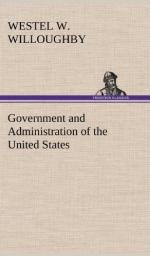We must remember that these courts deal only with Federal questions arising under United States laws, and, that besides these courts, all of the States have their own judicial systems of courts to interpret state laws and to try the great majority of cases. These courts are entirely separate from the United States courts, and with different judges, though cases may begin in them and be transferred to the United States Courts, if the interpretation of a Federal law is brought into question.
There are four grades of law in the United States. First and highest is the United States Constitution; second, United States laws, or statutes as they are called, passed by Congress; third, State constitutions; and fourth, State laws, passed by the State legislatures. In case of conflict of laws the lower must yield to the higher.
For the purpose of settling claims of private persons against the United States, there has been established at Washington a Court of Claims, held by five judges. From it appeals lie, in some cases, to the Supreme Court, and, in others, they are referred to Congress for action.
CHAPTER XII.
The Ordinance for the Government of the Northwest Territory.
When the colonies joined in union under the Articles of Confederation, in 1781, they ceded to the General government their claims to unoccupied western territory. The largest land grant was that by the State of Virginia, which occupied that part of the United States lying north of the Ohio River and east of the Mississippi River.
The problem of management of public lands was thus early presented to our Federal Government for solution. The manner in which Congress dealt with this question has proven eminently wise and successful, and has been largely influential in making the United States the nation that it is to-day. The feature that has characterized the plan followed from the beginning, and which still obtains, is the formation of States from such territory as soon as there is sufficient population. Such States have similar forms and powers of government as the original States, are on an equal footing with them, and are bound by the Constitution of the United States. Congress has absolute control of the Territories. (For Territorial government see Article on Territories.)
The ordinance which the Continental Congress adopted in 1787 for the government of the Northwest Territory is of great importance: it provides for the establishment of our territorial system; it contains many of those features of management which have been used from that date until now; and it is also of interest because of the influence it has had upon the history of slavery in our country.




